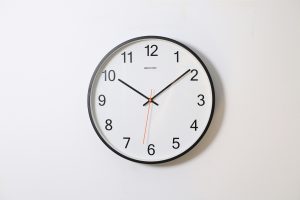Suspect You Might be an Obsessive Clock Checker?
Do sleepless nights leave you wide awake, anxiously trying to count sheep but instead counting down the minutes and seconds until it’s time to rise and shine?
It is easy to say: “duh, just stop checking the time?” However, ignoring the clock’s face only leads to restlessly trying to figure out… how long have I been asleep? What time is it now?
This obsession with the time doesn’t just haunt those long nights tossing and turning; it can permeate into the daytime. The impossibly slow ticking of the clock at work, turning minutes into hours. The phenomenon of time flying when you’re having fun is all too real. It’s as if the clocks speed up and slow down, leaving us feeling rushed, impatient, and sometimes even sleepless.
Are you starting to realise that you’re never not conscious of the time? Imagine the freedom of not knowing the time and not caring.

Most Brits check their phones every twelve minutes on average – it’s excessive but let’s face it, we’ve all been there:
Check the time on my phone,
Put it away,
Find myself reaching for it again,
Re-checking because I wasn’t paying attention.
It’s time (excuse the irony!) to break out of this cycle. If you suspect you might be an obsessive clock checker, here is how to stop.
Alright, let’s break it down. The human brain needs closure. When there’s missing or incomplete information, it keeps bugging you until you sort it out. Like not knowing what time it is – that kind of brain itch… got it?
Here’s a solution: Pause for a bit and really think about that compulsion. Dive into those feelings. What happens if you just ignore it? The answer: not a sausage. To make things simpler, ditch the wristwatch, take the batteries out of any nearby clocks, slap a post-it note over the time on your computer screen, and pry your phone from your hand—keep it at arm’s length, or even farther.
And hey, if those sleepless nights of clock-watching leave you feeling utterly exhausted, why not treat yourself to some Doozy caffeine? It’s the perfect pick-me-up—a reassuring and energising cup of coffee to help you power through the day.
(It’s important to note that if compulsive behaviours begin to affect your life or well-being, seeking professional health advice is highly recommended.)
Why not treat yourself to some Doozy caffeine?
Say hello
Get in touch or come for a visit
